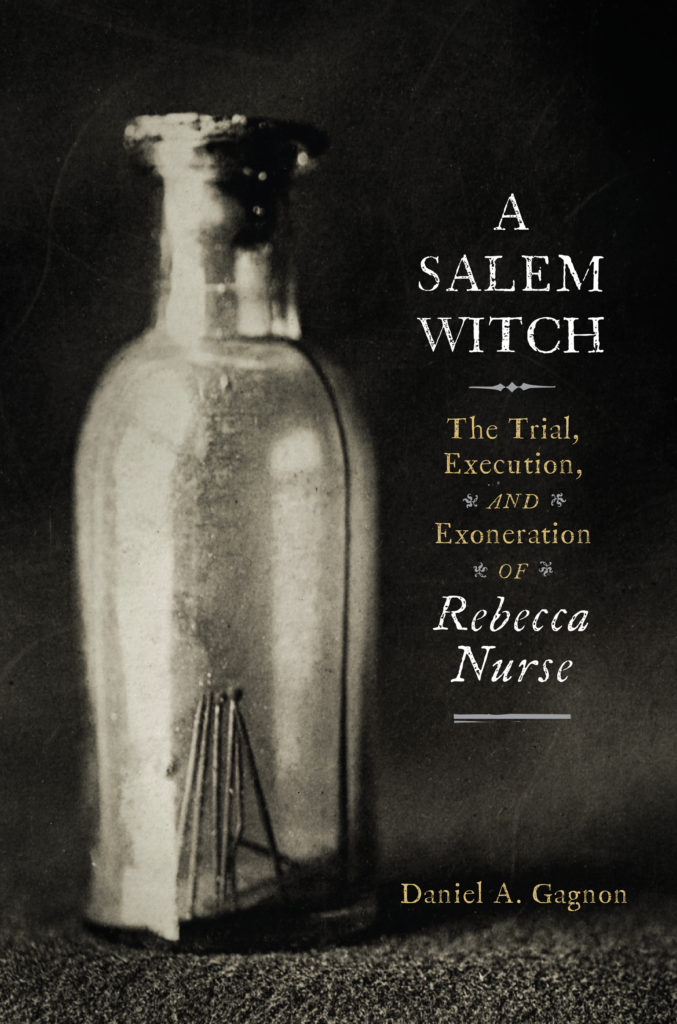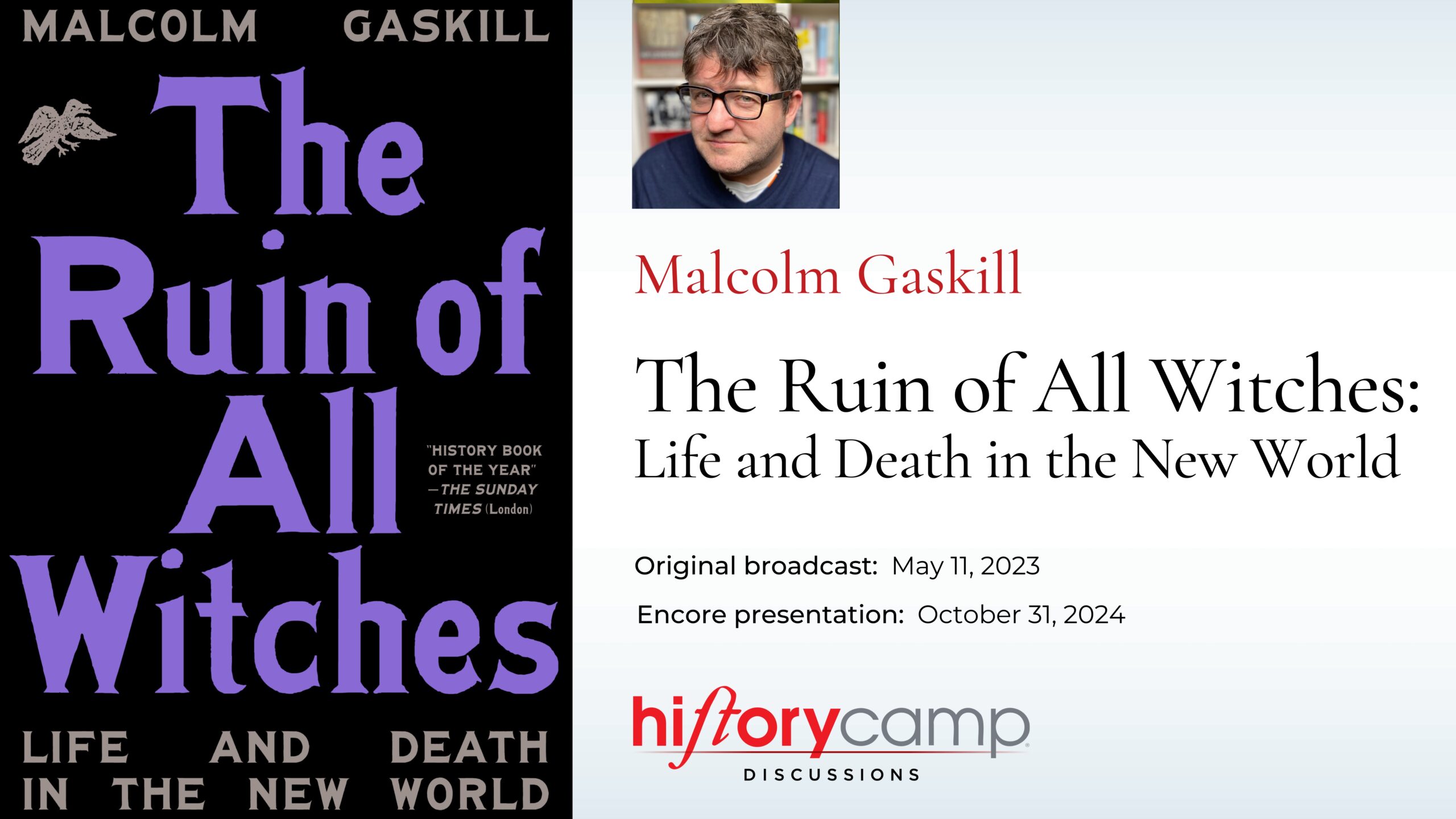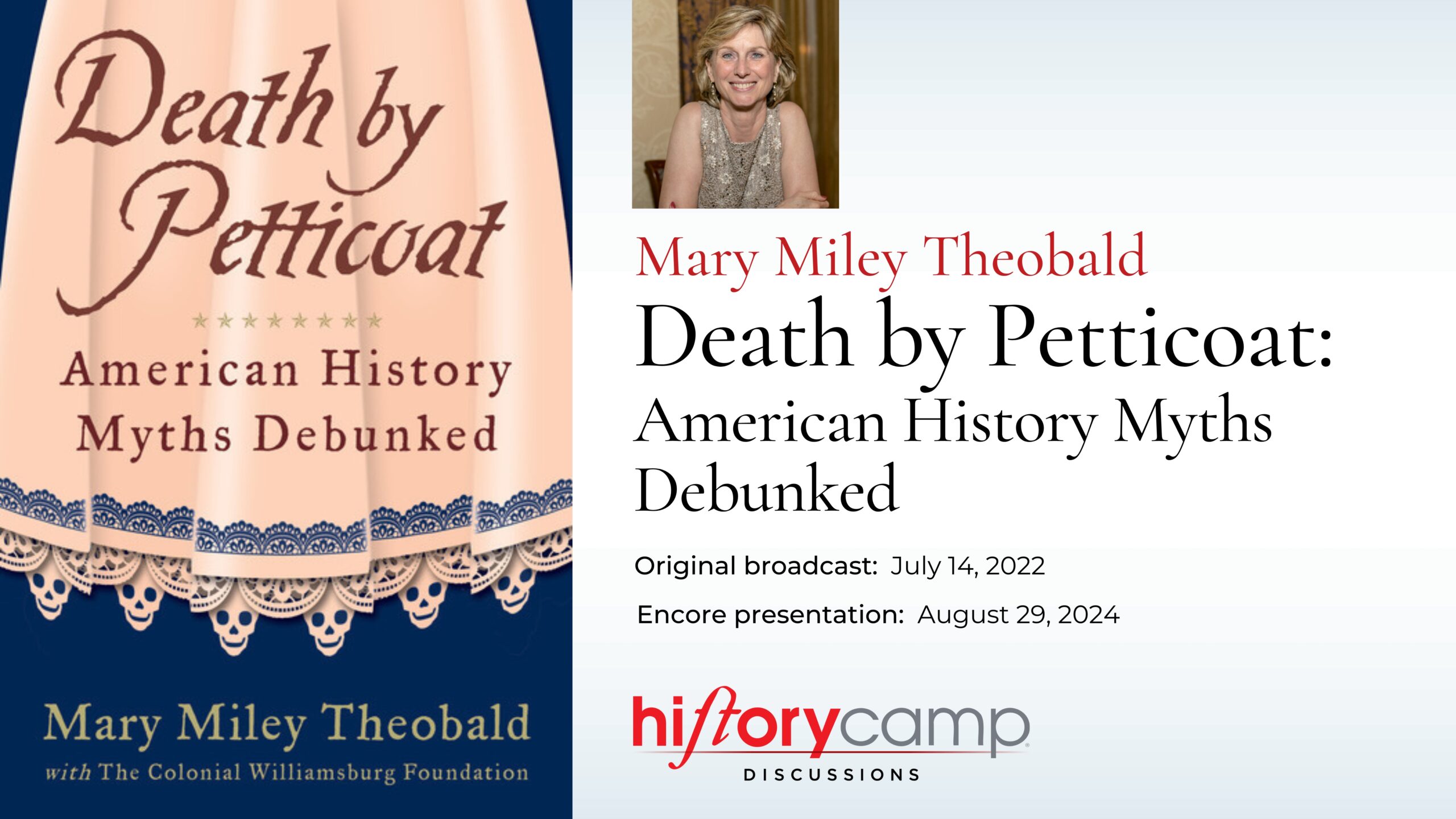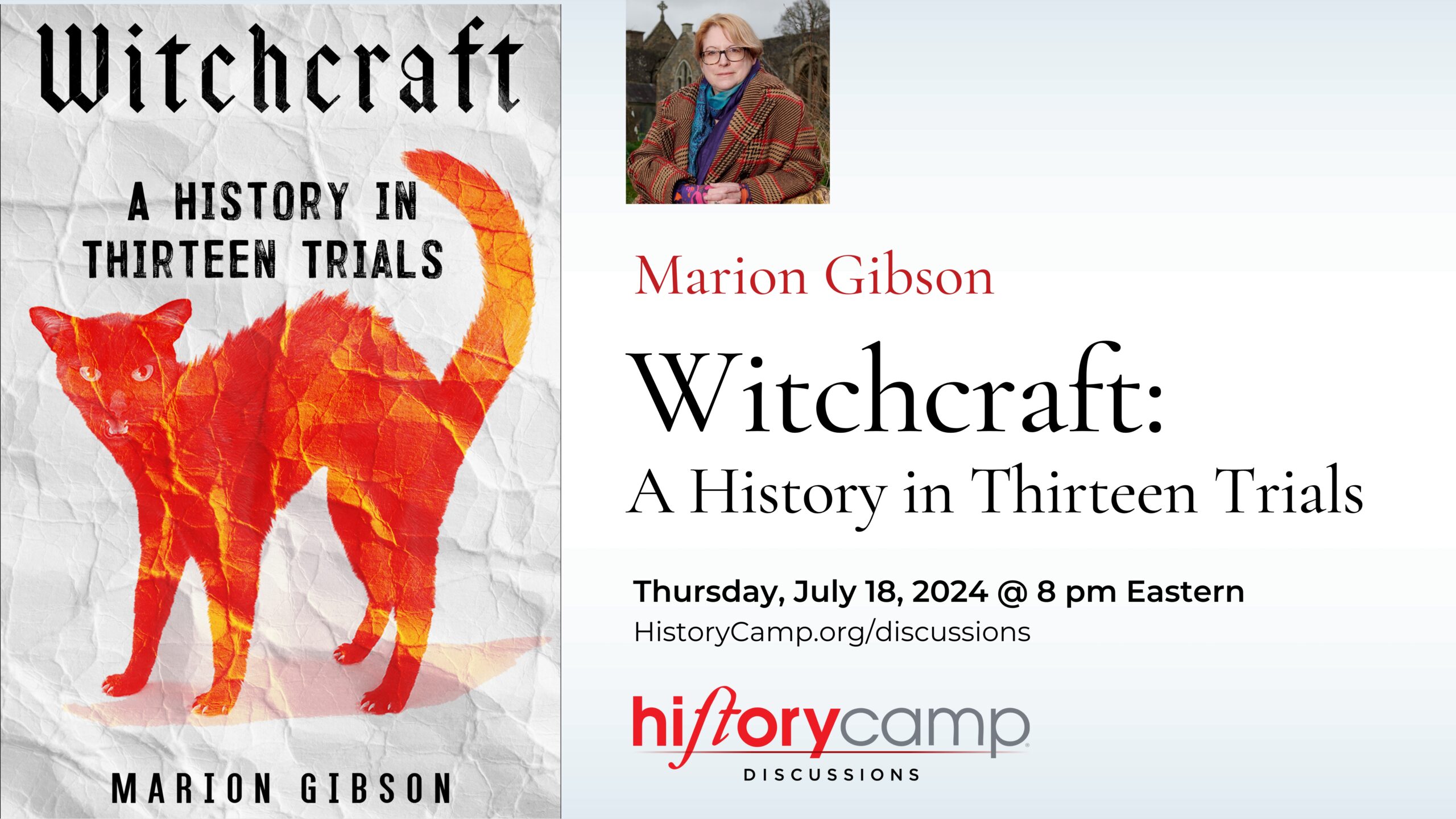Daniel A. Gagnon
A Salem Witch: The Trial, Execution, and Exoneration of Rebecca Nurse
Historian Daniel A. Gagnon, on his new book, A Salem Witch: The Trial, Execution, and Exoneration of Rebecca Nurse, which is a biography of accused witch, Rebecca Nurse, and a fresh examination of the Salem witch trials.
—
[Publisher’s excerpt.]
In the winter of 1692 something terrible and frightening began in Salem Village. It started with several villagers having strange fits, screaming, and unnaturally contorting themselves, and ended with almost two hundred people in jail, and at least twenty-five dead. Witchcraft accusations—claims that some inhabitants had forsaken God to become servants of the Devil—spread from Salem Village across Massachusetts, ensnaring innocent people from all strata of society under a burden of assumed guilt. One of the most significant accusations, and most unlikely, was against a seventy-one-year-old grandmother, Rebecca Nurse.
The accusations against Nurse, a well-respected member in the community, seemed unbelievable. Unflinchingly, this ailing elderly woman insisted on her innocence and refused to falsely confess. Supported by many in Salem, Nurse’s family and neighbors challenged her accusers in court and prepared a thorough defense for her, yet nothing could surmount the fear of witchcraft, and she was sentenced to death. Nurse, seen as a martyr for the truth, later became the first person accused of witchcraft to be memorialized in North America.
In A Salem Witch: The Trial, Execution, and Exoneration of Rebecca Nurse, the first full account of Nurse’s life, Daniel A. Gagnon vividly recreates seventeenth-century Salem, and in the process challenges previous interpretations of Nurse’s life and the 1692 witch hunt in general. Through primary source research, he reveals how the Nurse family’s role in several disputes prior to the witch hunt was different than previously thought, as well as how Nurse’s case helps answer the important question of whether the accusations of witchcraft were caused by mental illness or malicious intent. A Salem Witch reveals a remarkable woman whose legacy has transformed how the witch hunt has been remembered and memorialized.
—
[Recorded November 18, 2021.]


Daniel A. Gagnon, MA, (danielgagnonhistory.com) is the author of A Salem Witch: The Trial, Execution, and Exoneration of Rebecca Nurse (2021), and serves on the board of the Rebecca Nurse Homestead Museum (formerly known as Salem Village) in Danvers, Massachusetts.






























